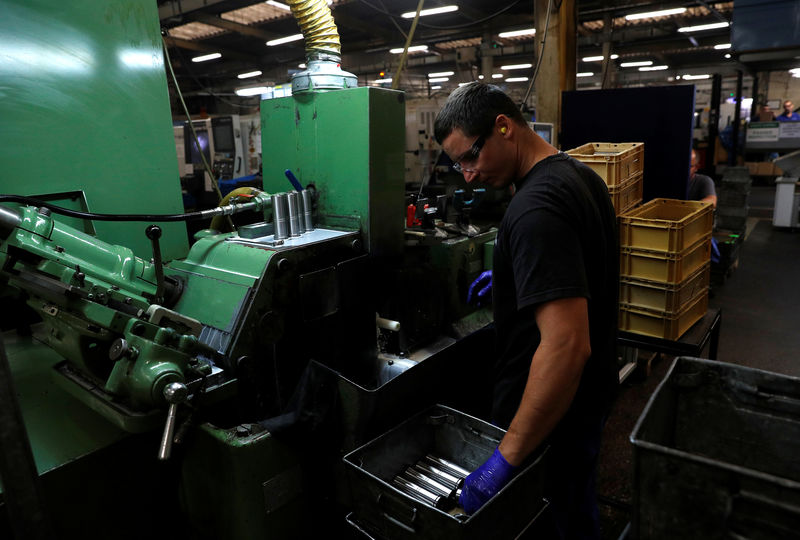LONDON (Reuters) - British businesses plan to raise basic wages by the most in at least seven years, due to recruitment difficulties and a need to keep pay in line with competitors, a survey showed on Monday, highlighting ongoing strength in Britain's jobs market.
The Chartered Institute of Personnel and Development (CIPD), a human resources professional body, said private-sector employers planned to increase basic pay rates this year by 2.5 percent on average, the most since the survey started in 2012.
Britain's labour market has proved resilient in the run-up to Brexit, with unemployment falling to its lowest since the mid-1970s, despite a broader slowdown that caused investment to slide and cut overall growth in 2018 to its weakest since 2012.
Bank of England policymaker Gertjan Vlieghe said last week firms may be choosing to expand by hiring staff rather than buying new equipment, as after a potential no-deal Brexit it would be easier to sack workers than sell unwanted machinery.
Official wage data due on Tuesday - which unlike the CIPD figures, also includes boosts from promotions and job changes - is likely to show pay rose at its fastest since 2008, up 3.5 percent on the year in Q4 2018, according to a Reuters poll.
Inflation was the top reason given by firms to the CIPD for expecting pay rises greater than 2 percent, raising a question about whether this will be sustained now inflation has fallen below this level.
Recruitment and retention issues and increases in the going rate of pay elsewhere were the other main reasons for raising pay by more than 2 percent.
Pay growth has been weak over the longer run, with wages still lower in real terms than they were on the eve of the financial crisis more than a decade ago.
The CIPD blamed this on stagnant productivity.
"Productivity is 22 percent lower than it would have been if the pre-financial crisis trend had continued. As a result, pay growth is woefully behind," CIPD economist Jon Boys said.
Public-sector workers will not be seeing their pay rise as fast as their private-sector colleagues, either.
The CIPD said public-sector employers expected average pay rises to drop back to 1.1 percent this year after a temporary rise to 2 percent, which had reflected a more generous settlement for hospital workers and some other staff.

As a result, the overall median wage settlement for employers across the economy remained unchanged at 2 percent.